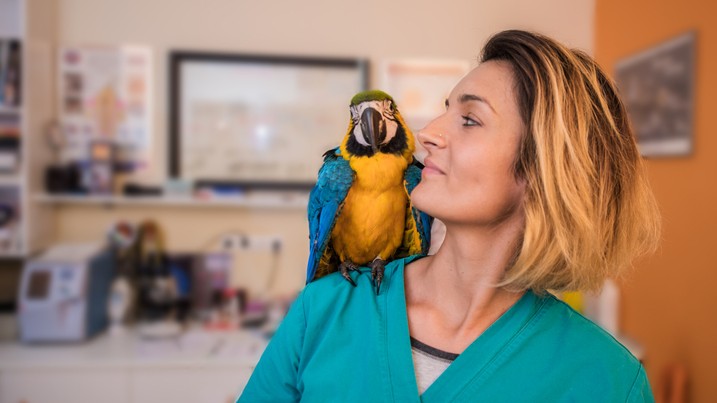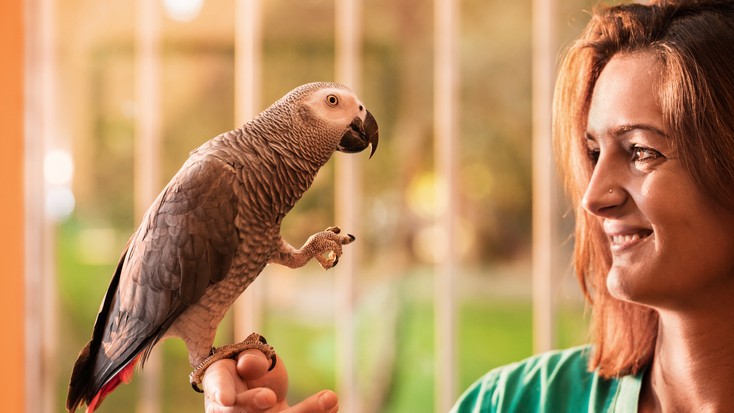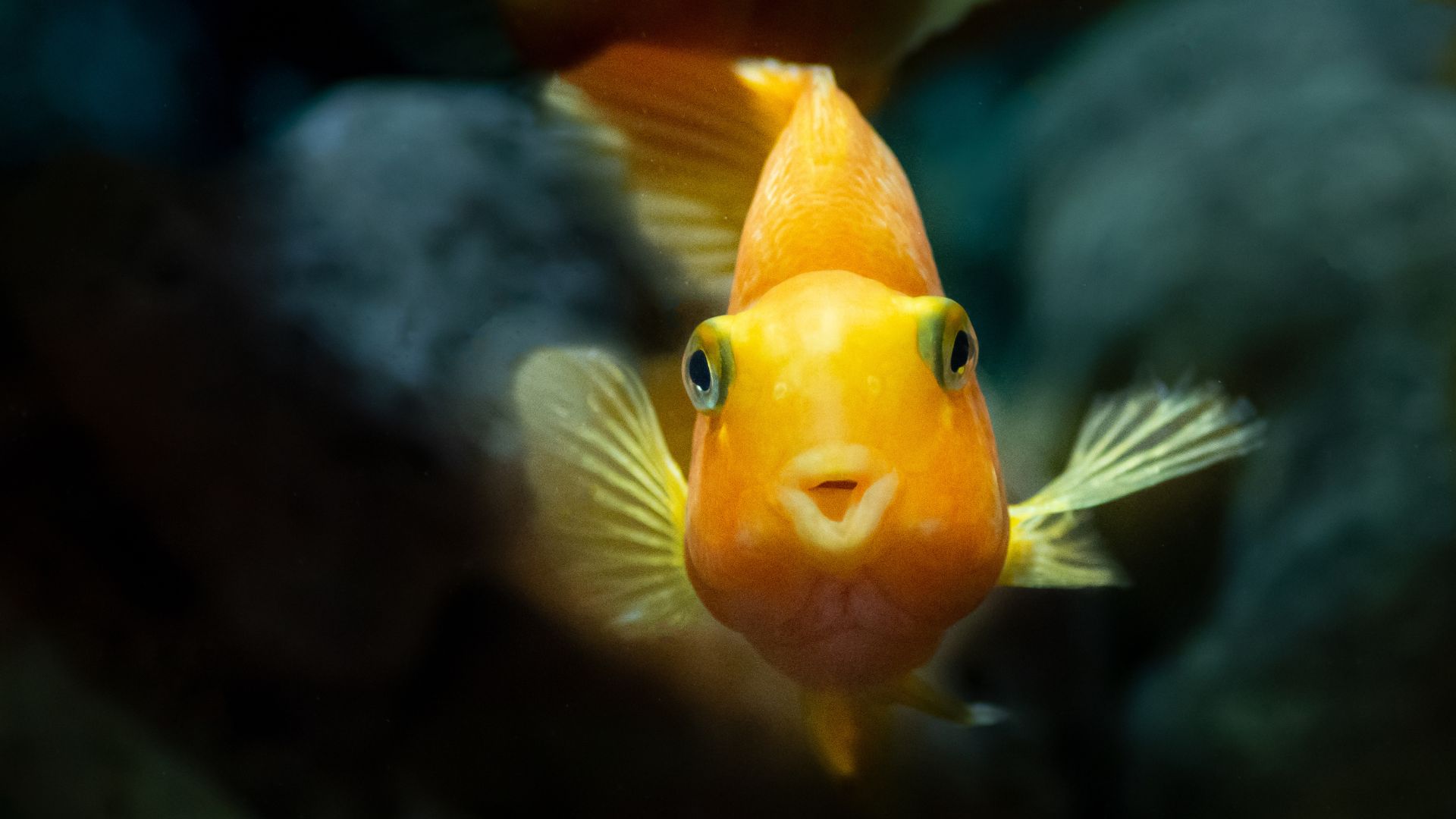Should you get a parrot for a pet?
If you have a parrot for a pet, does it say a lot about you? Joking aside, there's certainly a lot to consider before buying one of these talkative birds

A parrot for a pet? Well why not? As well as repeating what you say and mimicking human language, parrots are highly social birds with heaps of personality. They'll reward you with great loyalty for many years to come and those who love them will tell you how great they are to have around.
Yet, the decision to buy a parrot is not so straightforward. There are 398 species of parrot, some large, some small and lots in between. Of those, about 220 are available in captivity and you’ll find grays, cockatoos, macaws and amazons among the larger species; rose-ringed parakeets, rosellas and conures occupying the middle ground; and budgies, cockatiels and parakeets among the tinier fliers. Your experience will vary depending on which you choose.
Parrots have been popular as pets for thousands of years. They were favorites among ancient Egyptians, royal companions in Asia and Africa and domesticated by the Romans. The birds were also so beloved of Portuguese explorers to India that those which ended up being brought back were protected by Pope Martin V's “keeper of the parrots” in the early 15th century.
Unfortunately, however, a demand for these birds in more recent times has led to an illegal trade in wild parrots. African grays are particularly highly sought-after due to their talkative nature and intelligence – so much so, that they’re now listed as being endangered. There is a concerted global effort to prevent the sale of these wild birds but that's not to say you should steer clear of those legally bred in captivity.
Large or small?
Reputable breeders care greatly for parrots yet they will also be honest about the hard work needed to look after them. There's certainly no getting around it: parrots can be demanding pets. Not only will their intelligence make them easily bored, they crave human attention, and we're talking hours of it. As such, these are not pets for anyone who spends most of the day away from home but they're perfect if you have a bustling family life with people constantly coming in and out of the house.
Of course, you must consider how much room you can give to your flying pet. As you can imagine, they're going to need a good amount of space in which to spread their wings, and the larger the bird, the more room they'll inevitably require.
This is going to help determine the size of parrot you choose but it's also worth bearing in mind how big your house is too. You can't keep a parrot caged 24/7 and you'll need to let them out. If you don't like the idea of a bird flying around your home for the hours they need to exercise or if you don't think they'll have enough overall room to do so, then it's best to reconsider.
Size matters
Size also matters in other practical ways. Smaller parrots, for instance – in particular budgerigars and cockatiels – are well suited for first time bird keepers. They're inexpensive to buy and feed, they don't take up a lot of room, and you'll find it easier to keep them entertained than those which are larger.
There's no compromise either. Budgies and male cockatiels will utter a few human words as well as sing and, since they're quieter than larger parrots (albeit still noisy), neighbors living close to your property are far less likely to get upset at the noise.
The larger birds need different considerations and they can be a lot to handle for novices. You're going to need a very large cage or even an aviary to ensure they are comfortable. Amazon grays and cockatoos also make an almighty racket so they're better suited to people living in detached homes with plenty of land.
Lifelong commitment
In all cases, enrichment is key to caring for a parrot and you'll need to tap into their natural instincts. “In the wild, their days are routinely spent traveling to and from feeding areas to forage and, during the breeding season, engage in courtship displays and mating,” says Desi Milpacher of the World Parrot Trust. “A parrot in captivity will have the urge to do these things, but will not be able to.”
The trick, then, is to keep their minds occupied. When you provide a parrot with food, you're literally handing it to them on a plate, cutting away the time they usually spend looking for it. Without the need to forage, they become idle and in need of stimulation both mentally and physically. It's why parrots need as many of the best toys for parrots possible. What's more, the larger the bird, the more toys you'll require and they'll need to be replaced more regularly to prevent boredom.
Given how long parrots live for, you're certainly going to be in it for the long haul. After all, some smaller parrots may not live beyond 10 years but larger ones can go on beyond 60 so consider your circumstances today and how they are likely to change in the future. And remember: it's possible to train a parrot, but they'll never be fully domesticated. Any foibles they have today will be ones you'll likely have to live with.

Behaving badly
And yes, parrots are messy, shedding feathers and tossing seeds around. They'll chew on your furniture, peck away at items and knock items to the floor. They will bite (it hurts), become moody (and hormonal), scream (wear muffs) and make it hard to commit to a full-time job. They also pick a person and can become territorial if anyone else comes close. These are behaviors you'll need to manage long term – the trick is not to pay attention to their tantrums but they'll try it on nonetheless and some things you just can't change.
You can't open the windows if parrots are flying free, you can't use nonstick cookware because of the fumes they give off, and you'll need to consider if plants in your home are poisonous. Some parrots such as the African gray, cockatoo and cockatiel have powder-down feathers and the white substance can set off asthma symptoms when the birds preen or ruffle their feathers.
Even so, the time you invest in a parrot will be rewarded with a curious level of affection and, as many owners find, it becomes hard to have just one. Many parrot lovers end up upgrading their cages and aviaries to accommodate new bird companions. They also spend much time contemplating getting more because there's great satisfaction in watching parrots play, grow and communicate, with seldom a dull moment along the way.
Needing the needy
So should you get a parrot for a pet? While it may feel as if we've tried to put you off, what we've really done is prepare you and if you have read the words above and you still want to go ahead, then you should. They're not easy pets; they'll ruffle a few feathers. But if they bond with you, then you'll adore your parrot with all your heart.
PetsRadar Newsletter
Get the best advice, tips and top tech for your beloved Pets

David Crookes has been a journalist for almost 30 years and he has written for a host of magazines, newspapers, websites and books including the World of Animals Annual, BBC Earth, Live Science, The Independent and Tom’s Guide.
Born in England, he lives with two cats but he’s also keenly interested in the differences between the huge number of dog breeds – in fact, you can read many of his breed guides that he’s written in collaboration with vets here on PetsRadar.
With a lifelong passion for technology, too, he’s always on the lookout for useful devices that will allow people to keep their pets happier and healthier, and provide them more time to spend together.
David has a degree from Durham University, as well as postgraduate diploma in journalism from the University of Central Lancashire.
